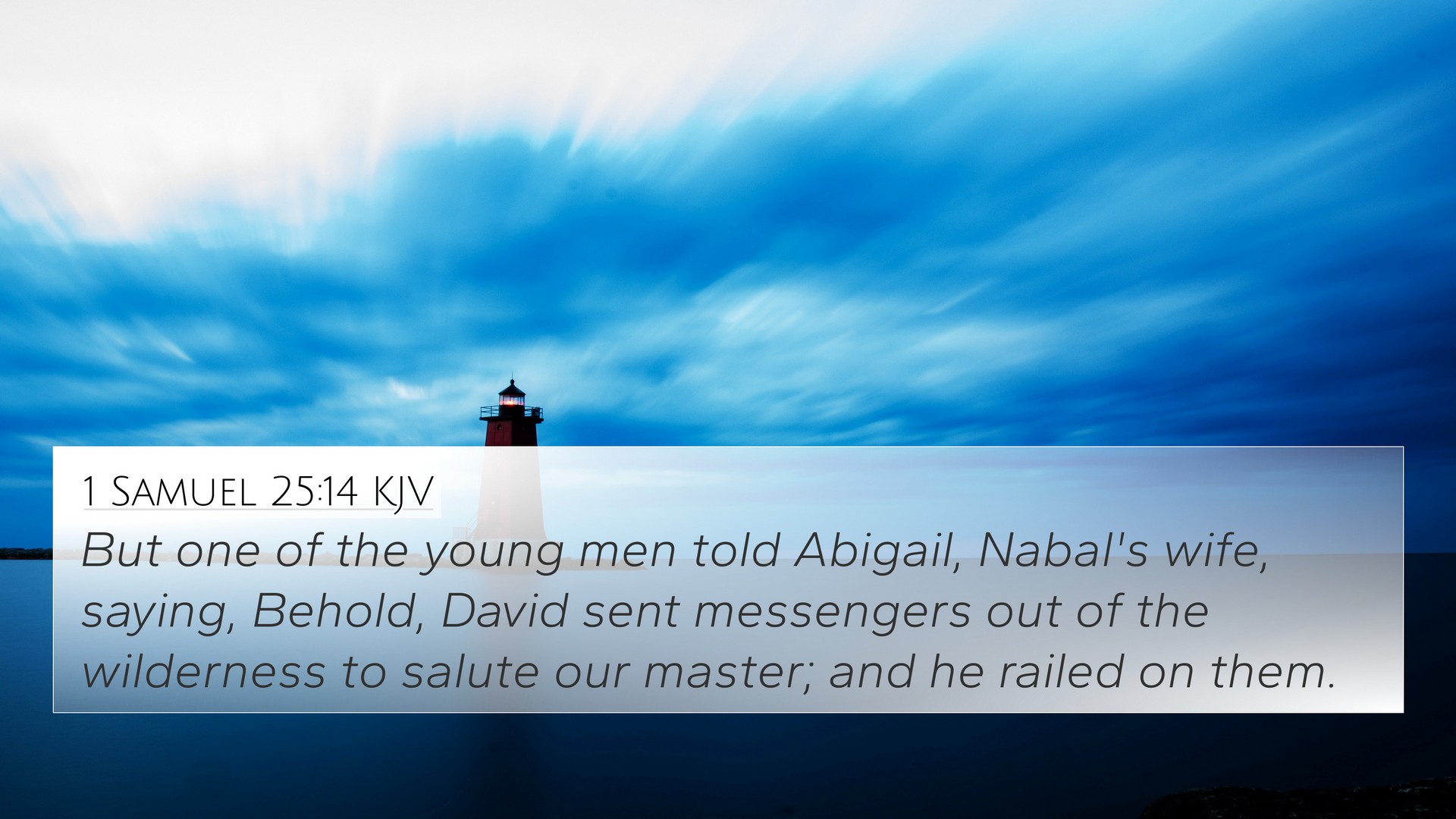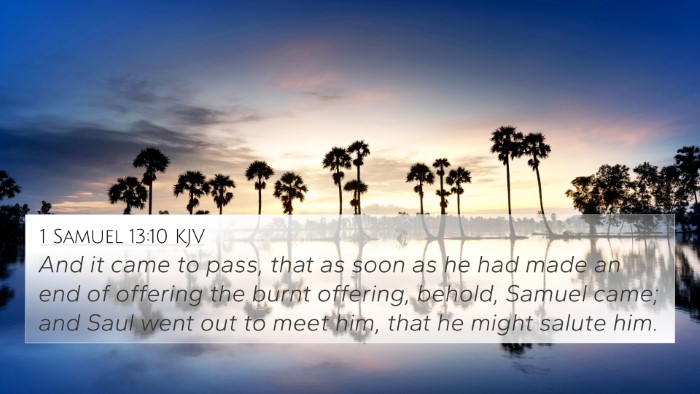Understanding 1 Samuel 25:14
The verse 1 Samuel 25:14 states:
"But one of the young men told Abigail, Nabal's wife, saying, 'Look, David sent messengers from the wilderness to greet our master; and he reviled them.'" (NKJV)
Overview
This verse unfolds a pivotal moment in the narrative concerning David, Nabal, and Abigail. The context is crucial in understanding the dynamics of the conflict and the implications of the characters’ actions.
Meaning and Interpretation
Matthew Henry's Commentary: Matthew Henry emphasizes the critical role of the young man's report. It serves not only to inform Abigail of the situation but also highlights Nabal's foolishness in disrespecting David and his men. Knowing the social customs of hospitality, the young man likely recognized the severity of Nabal’s actions and the potential consequences for their household.
Albert Barnes' Commentary: Barnes draws attention to the relationship dynamics in this scenario. David, having been wronged, is positioned to act in judgment; thus, an appeal to wisdom is necessary. Abigail's intelligence and prompt action in response to the young man's report become vital themes, showcasing the importance of discernment in difficult situations.
Adam Clarke's Commentary: Clarke notes that this event serves as a backdrop for the larger narrative of God's providence in David’s life. The report from the young man acts as a turning point, urging Abigail to avert disaster, which eventually leads to a resolution that reinforces God's orchestration in human affairs.
Thematic Connections and Cross-References
The verse illustrates several key themes such as folly, wisdom, and providence, which resonate throughout the Bible. Here are some related cross-references:
- Proverbs 12:15: “The way of a fool is right in his own eyes, but a wise man listens to advice.” This verse parallels Nabal's foolishness with Abigail's wise response.
- 1 Samuel 25:3: Describes Nabal as "Harsh and evil in his doings," emphasizing the character traits that lead to conflict.
- 1 Samuel 16:7: “For the Lord sees not as man sees; man looks on the outward appearance, but the Lord looks on the heart.” This indicates God’s judgment diverging from human perception, a theme echoed throughout David’s life.
- Proverbs 11:14: “Where there is no guidance, a people falls; but in an abundance of counselors, there is safety.” Reflects the wisdom in seeking counsel amidst strife, akin to Abigail’s actions.
- Romans 12:19: “Beloved, never avenge yourselves, but leave it to the wrath of God...” correlates with how David learns to respond to challenges and opposition wisely.
- 1 Peter 5:5: “Clothe yourselves, all of you, with humility toward one another…” highlights the importance of humility, which Abigail embodies in her interactions.
- 2 Samuel 2:4: References David being anointed king, indicating the unfolding divine plan amid personal conflicts.
Applications
This verse teaches the importance of listening to wise counsel and the impact of our actions on others. Abigail's proactive measures highlight the value of discernment in navigating conflicts. As one studies this scripture, it encourages reflection on how one responds to folly and how wisdom can lead to redemption.
In the search for Bible verse cross-references, this verse serves as a rich ground for exploring the connections between the Old Testament and New Testament. Utilizing tools for Bible cross-referencing can enhance understanding, revealing deeper insights into the narrative.
Conclusion
1 Samuel 25:14 opens a window into the complexities of human character and the interplay of divine providence. By analyzing this verse alongside its cross-references, one can appreciate the interconnectedness of biblical themes, offering timeless principles applicable today.




